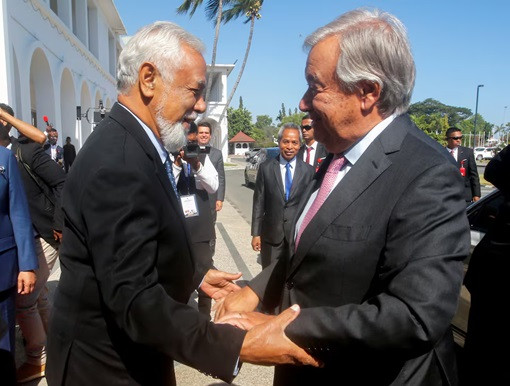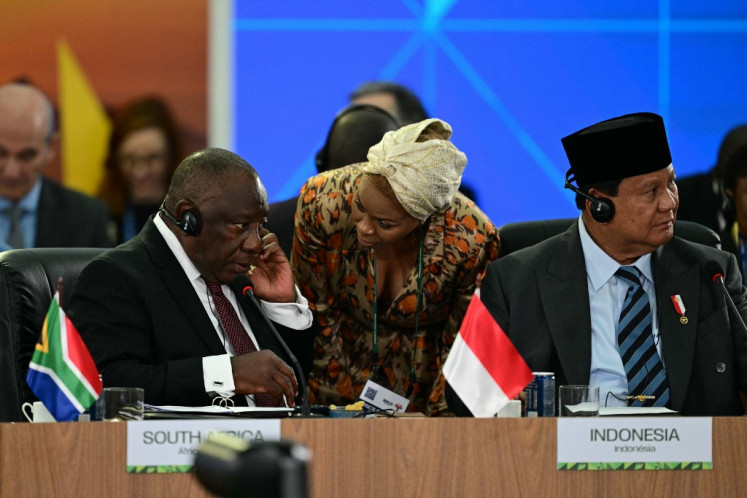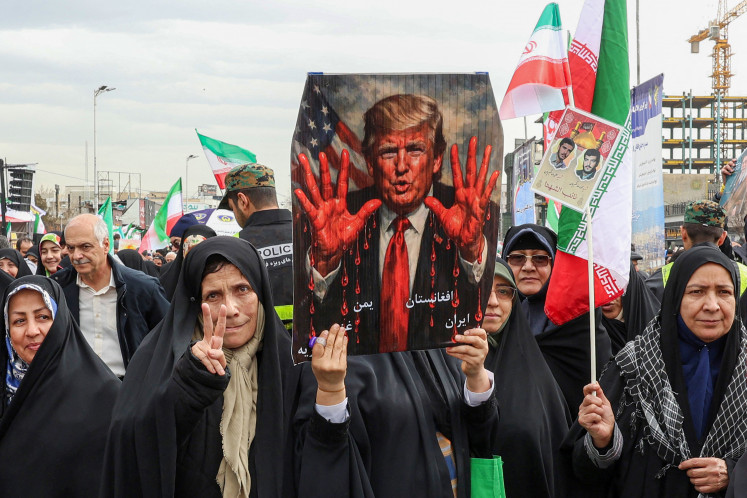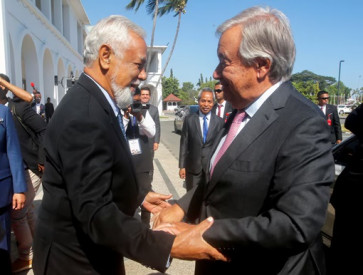Popular Reads
Top Results
Can't find what you're looking for?
View all search resultsPopular Reads
Top Results
Can't find what you're looking for?
View all search resultsWith each emboldened voice, Timorese reclaim history
Similar to the ignorance of nationals of former colonizers, like the Japanese, Dutch and British, any suggestion of Indonesians’ cruelty in East Timor sounds incredulous.
Change text size
Gift Premium Articles
to Anyone
T
he crowd called out one name: “Hakim, Hakim!” Drink in hand, Hakim Afonso happily joined the singer on stage. He waved his hands to the beat with revelers who sang along to “Labarik Lakon” — the missing children. “Yes, I must learn” the Tetun language, he told me.
With one brother and a sister, the three were among thousands of children taken from their families by Indonesian soldiers and “foundations” during the Indonesian rule of East Timor, now Timor-Leste. Hakim speaks Indonesian, English with an Australian accent and Sundanese—as he was raised in West Java since he was about five years old.
His family was among a lucky few who could be reunited after some 20 years in their home in the eastern Viqueque district. One woman who managed to return was driven away by her sister, a victim of rape by an Indonesian soldier. “Why should I meet her? She’s Indonesian!” said the sister, as quoted by an activist working with survivors of sexual violence.
Hakim had haltingly shared his story at a human rights seminar the previous day. “I just want to live in peace,” he repeated. Tears aside, he and another brother joined a night of dancing, to celebrate 25 years of the “popular consultation” of Aug. 30, 1999, which led to Timor-Leste’s independence from Indonesia.
Worse than denials of Timorese’ experience is the average Indonesian’s ignorance of East Timor; hence the “ironic” commemoration, remarked Pat Walsh, the editor of Chega! (Enough!), the report of the nation’s Truth and Reconciliation Commission (CAVR). The only news on Timor-Leste in Indonesian media at the end of August was the visit of Pope Francis.
Among the Pope’s impromptu address before some 600,000 Catholics was his unclear warning against “crocodiles […] that want to change your culture, your history.” People visiting beaches had been warned against crocodile attacks.
Regardless of any threats, or the embracing of Timorese leaders with their Indonesian counterparts, the plaques of sitiu istoriku (historical sites), such as the one marking the former Indonesian military command in Dili, show Timorese are preserving their history.



















